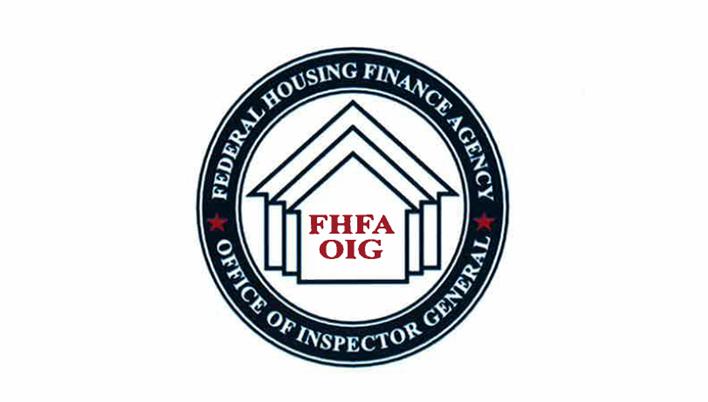Evaluation of the Federal Housing Finance Agency’s Oversight of Freddie Mac’s Repurchase Settlement with Bank of America
Why FHFA-OIG Did This Evaluation
In the closing days of 2010, the Federal Housing Finance Agency (FHFA or Agency), acting in its capacity as the conservator of the Federal Home Loan Mortgage Corporation (Freddie Mac or the Enterprise) and the Federal National Mortgage Association (Fannie Mae) (collectively the Enterprises), approved two agreements totaling $2.87 billion under which the Enterprises settled mortgage repurchase claims asserted against Bank of America.
Freddie Mac and Fannie Mae have purchased millions of mortgages from loan sellers, such as Bank of America. The contracts under which the Enterprises purchased the mortgages provide them with the right to require the sellers to repurchase mortgages that do not meet the underwriting criteria represented and warranted by them. Freddie Mac’s $1.35 billion settlement with Bank of America could serve as a precedent for future repurchase settlements.
The FHFA Office of Inspector General (FHFA-OIG) began a review after Members of Congress and others questioned the adequacy of the settlements. During the review, two individuals independently reported their concerns about the Freddie Mac-Bank of America settlement, and FHFA-OIG commenced this evaluation.
What FHFA-OIG Found
FHFA-OIG found that FHFA senior management did not timely address significant concerns raised about the loan review process used by Freddie Mac and its ramifications on underlying the settlement. Specifically, FHFA-OIG makes three findings.
First, in mid-2010, prior to the Bank of America settlement, an FHFA senior examiner raised serious concerns about limitations in Freddie Mac’s existing loan review process for mortgage repurchase claims, which, according to the senior examiner, could potentially cost Freddie Mac a considerable amount of money. Freddie Mac’s internal auditors independently identified concerns about the process at the end of 2010. These concerns merited prompt attention by FHFA because they potentially involve significant recoveries for Freddie Mac and, ultimately, the taxpayers. Further, unless examined and addressed, the underlying problems are susceptible to recurrence.
Second, FHFA did not timely act on or test the ramifications of these concerns prior to the Bank of America settlement. FHFA-OIG did not independently validate Freddie Mac’s existing loan review process and, therefore, does not reach any final conclusion about it. Nevertheless, by relying on Freddie Mac’s analysis of the settlement without testing the assumptions underlying Freddie Mac’s existing loan review process, FHFA senior managers may have inaccurately estimated the risk of loss to Freddie Mac.
Third, following the initiation of FHFA-OIG’s evaluation, FHFA, to its credit, suspended future Enterprise mortgage repurchase settlements premised on the Freddie Mac loan review process and set in motion activities to test the assumptions underlying the loan review process. Additionally, other findings tend to support the validity of the concerns about the process. For example, on June 6, 2011, Freddie Mac’s internal auditors issued an audit opinion that the Enterprise’s internal governance controls over this process were “Unsatisfactory.” Furthermore, at the end of 2010 and then again in mid-2011, a Freddie Mac senior manager advised the board of directors that the Enterprise could recover more in the future if it used a more expansive loan review process.
What FHFA-OIG Recommends
FHFA-OIG makes two recommendations. FHFA and its senior management should promptly: (1) act on the specific and significant concerns raised by FHFA staff and Freddie Mac internal auditors about Freddie Mac’s loan review process; and (2) initiate reforms to ensure more generally that senior managers are apprised of and timely act on significant concerns brought to their attention.
Full report below…
~
4closureFraud.org
~


They will purchase just what everyone thought, NOTHING!!!!!!!!!!!